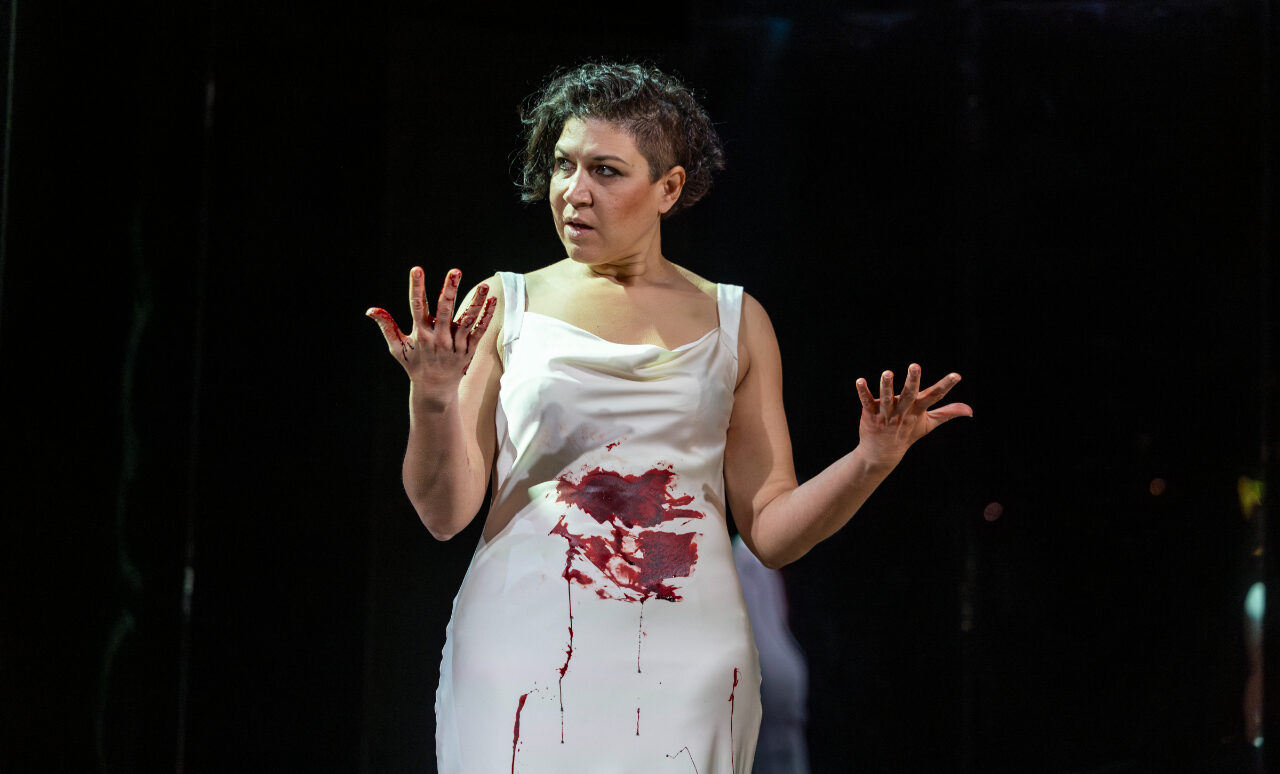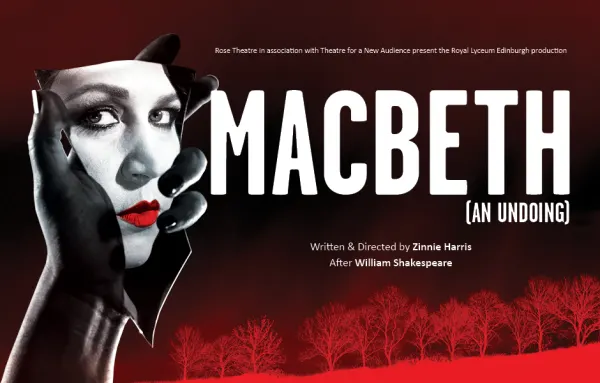Macbeth (An Undoing) at Rose Theatre

It’s no easy feat to re-write Shakespeare, especially arguably his most famous work Macbeth. Zinnie Harris’s Macbeth (An Undoing) tackles this head-on with feminist vigour, creating a performance that embraces its eerie Scottish heathland backdrop, ensuring the audience gets the gore they were promised whilst putting Shakespeare’s most ruthless and ambitious female lead at its heart.
The play revels in Shakespearean audience tradition. “So you’re here for blood?” the narrator greets us, as we misery seekers sip our wine and rattle our packets. Following the original plot closely within the first half, the narrative’s undoing begins as the curtain rises after the interval, with Lady Macbeth firmly placed at its core.
Although adopting 1920s fashion, the play embraces the linguistics it was born into, with a few profanities and offhand remarks, which aren’t quite enough to bring the script forward into modern day, but also leave it too current to sit within its early 17th century origins.
The performance draws attention to its lack of superfluous visual effects, relying on performance and props to convince the audience of a descent into madness. Adam Best’s highly successful performance delivers a tormented and guilt-ridden Macbeth driven to insanity. Liz Kettle’s role as Carlin is the most memorable, morphing into various characters and acting as narrative overseer. Her bard-like delivery to the audience and supernatural nature make her simultaneously likeable and chilling.
Similarly, Nicole Cooper’s turn as the Lady of the hour is just as harrowing, as we painfully watch a woman attempt to escape her fate already sealed by an age-old narrative. Her breaking of the fourth wall portrays her mental breakdown, a layering which continuously confuses reality and fiction. Her role as an actress becomes muddled with her fictional character, as she calls to the stagehand “assistant” when scenes don’t play out the way she expects.
This contortion is further emphasised by her misgendering as she takes on her husband’s duties. Referred to as “Lord”, the men surrounding her refuse to see power in the form of a woman, rather her title of Queen becomes obsolete in favour of King. Lady Macbeth’s loss of identity not only highlights her mental turmoil, but also her fight as a woman to be recognised as an intelligent individual, even capable enough to plot and execute the murder of a King.
A hall of mirrors surrounds the stage, refusing characters the ability to hide from themselves or their choices, reflecting the inevitability and inescapability of the tale. Blood appears out of thin air, coating costumes and overflowing the stage, whilst an incessant foreboding knocking makes the audience question their own sanity.
Fragmentation is a key theme throughout, splitting and subverting genders, blending fact and fiction and twisting reality beyond the stage perimeters. However, this fragmentation is perhaps taken too far, to the point where the pieces don’t quite fit back together. As the plot veers, narrative additions such as Lady Macbeth’s sisterly relationship with Lady Macduff (Emmanuella Cole), as well as Lady Macduff’s affair with Banquo (James Robinson), feel underdeveloped and unnecessary.
Although leaving more questions than answers, the play successfully provides Lady Macbeth with the limelight to tell her side of the story. However, her desire to be remembered as “powerful, fearless and unrepentant” is quashed by the feeling of pity for a woman whose story is too short-lived. Harris’s retelling, however, spotlights Lady M as a cunning and determined female antagonist, or arguably tragic heroine, and the woman mastermind behind one of Shakespeare’s most enduring and entertaining plays.
Olivia Gardener
Images: Ellie Kurttz/Stuart Armitt
Macbeth (An Undoing) is at Rose Theatre from 14th until 23rd March 2024. For further information or to book visit the theatre’s website here.

























Facebook
Twitter
Instagram
YouTube
RSS